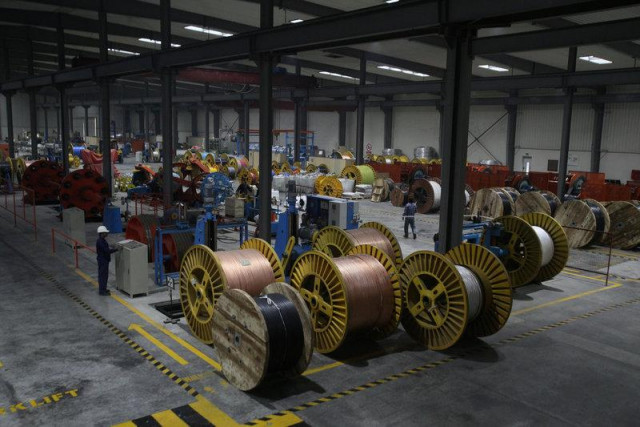Carmakers find it difficult to maintain prices
Indus Motor CEO says rupee fall, high freight and raw material costs are major concerns

It is becoming increasingly difficult to hold car prices at current levels keeping in view the higher exchange rate, soaring freight cost and climbing raw material rates, said Indus Motor Company Chief Executive Officer Ali Asghar Jamali.
Talking to a group of journalists on Wednesday, Jamali said that these factors affected prices of cars and they were beyond the control of vehicle manufacturers.
He hinted that his company might increase prices of vehicles in the wake of escalating global raw material prices and weakening of the rupee. “A hefty surge in the cost of raw material including steel, copper and aluminium is being witnessed across the world,” he said. “Additionally, rupee depreciation is putting immense pressure on the original equipment manufacturers.”
He pointed out that steel rates had spiked by a staggering 215% since March 2020 in the global market.
Similarly, the prices of aluminum surpassed the $3,000-per-ton mark in October 2021 while copper rates hit $10,000 per ton. “The irregular fluctuation of the rupee combined with the hike in international commodity prices will remain a concern for the carmakers,” remarked Jamali.
Talking about new investment by the firm, he said that the company was striving to enhance production capacity by 20% by April 2022 in a bid to meet ballooning demand.
He stated that recently a groundbreaking ceremony was held at the company’s plant to expand the international multipurpose vehicle (IMV) production by over 22%.
He pointed out that the carmaker recently invested over $100 million for the production of hybrid electric vehicles in Pakistan.
“The investment is aimed at localisation of components, plant expansion and production preparation for the first hybrid electric vehicle,” said Jamali. He appreciated the government’s policy to encourage low carbon mobility solutions under the prime minister’s vision of “Clean and Green Pakistan”.
“Hybrids are a practical and sustainable solution for achieving mass electrification in Pakistan,” he said and announced that the automaker would introduce an efficient, fourth generation hybrid electric vehicle in local markets soon.
Published in The Express Tribune, November 4th, 2021.
Like Business on Facebook, follow @TribuneBiz on Twitter to stay informed and join in the conversation.



















COMMENTS
Comments are moderated and generally will be posted if they are on-topic and not abusive.
For more information, please see our Comments FAQ